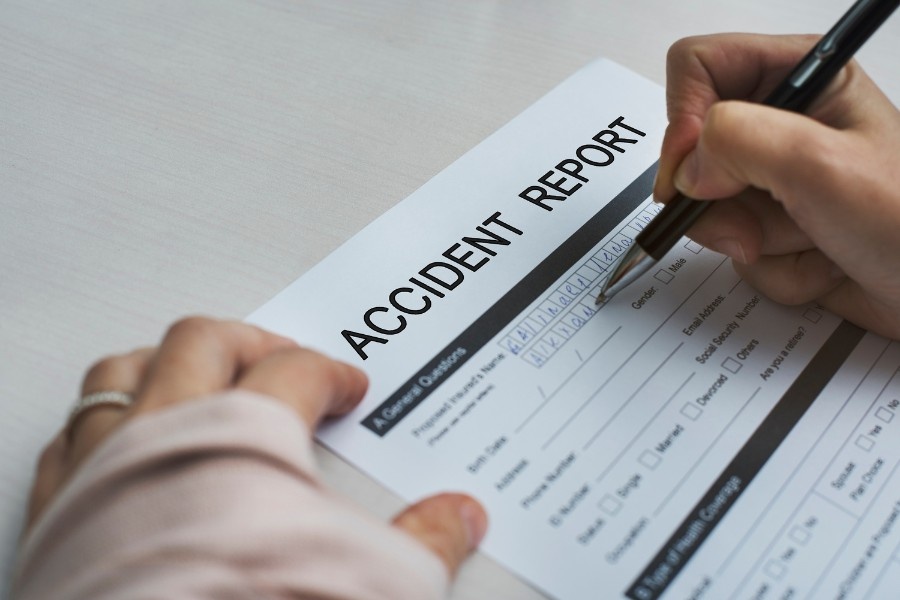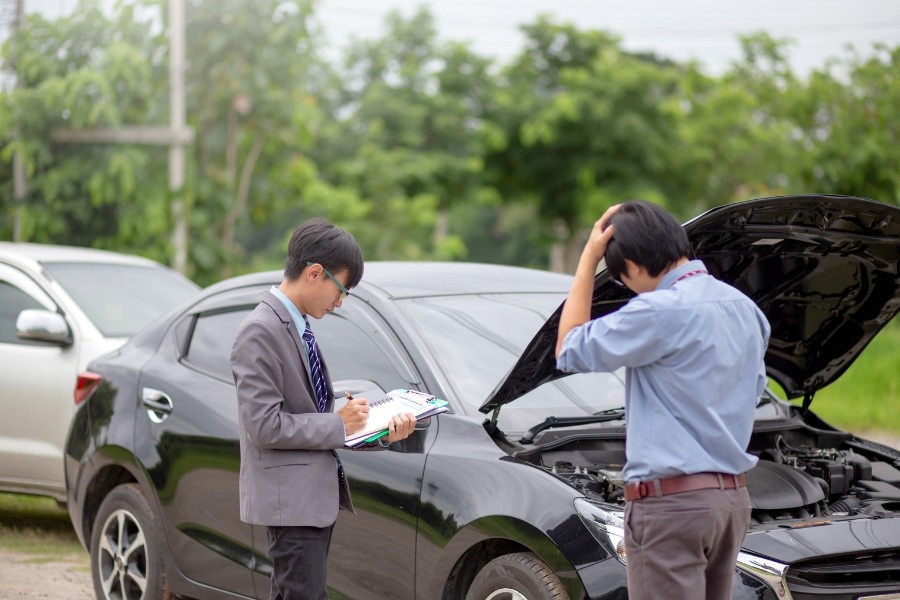Key Takeaways:
- Understanding the reasons for claim denial and acting promptly with supporting documentation is important for a successful appeal.
- Claimants should be aware of both internal appeals processes with their insurer and external dispute resolution options like FIDReC or mediation.
- Legal consultation is essential when dealing with complex liability disputes or challenging unfair insurance company tactics.
- Building a strong case with comprehensive evidence and effective negotiation strategies can significantly increase compensation.
- Understanding the time and cost implications of pursuing legal action is vital for making informed decisions.
Overcoming the Challenges of an Accident Claim Denial
An accident claim denial can cause significant frustration and confusion. In Singapore, approximately 20% of health insurance-related complaints over the past three years were due to unsuccessful insurance claims. Understanding the reasons behind these denials and the steps to address them is essential for securing rightful compensation.
Systematic approach improves the likelihood of a successful accident claim appeal. Familiarity with insurance assessment criteria, common rejection reasons, and available legal options empowers claimants to respond effectively. Collecting evidence, reviewing policy details, and employing negotiation strategies are vital in strengthening a denied claim. Legal professionals can assist in disputing unjust rejections through mediation or formal appeals.
Managing an accident claim denial requires awareness of procedural steps and available recourse. This guide outlines the appeal process, legal considerations, and key actions to take after a denied claim. Claimants will gain valuable insights into challenging denials, maximizing compensation, and protecting their rights under Singapore’s legal framework.
Understanding Claim Denials and Common Reasons
Insurance companies reject claims for various reasons. Policy exclusions limit coverage based on specific terms. Certain damages or circumstances fall outside the policy’s protection. Claimants must review policies carefully to understand coverage limitations.
Liability disputes often result in rejected claims. Insurers assess fault before approving compensation. Disagreements over responsibility lead to prolonged investigations. Strong evidence, including accident reports and witness statements, strengthens a case.
Incomplete or insufficient documentation weakens claims. Missing medical records, repair estimates, or police reports create justification for denial. Organized and thoroughly documented submissions improve approval chances. A clear and accurate presentation of evidence supports a successful claim appeal.
Inconsistent statements during the claims process raise red flags. Insurers compare accident reports, witness testimonies, and medical records for discrepancies. Contradictions in statements lead to suspicion and possible claim rejection. Providing accurate and consistent information from the start helps avoid unnecessary disputes.

Immediate Actions After an Accident Claim Denial
Reviewing the denial letter provides clarity on the reasons behind the rejection. Understanding the insurer’s justification allows for a more informed response. Identifying policy exclusions, missing documents, or liability disputes helps in determining the next course of action.
Gathering supporting documents strengthens the appeal. Accident reports, medical records, witness statements, and photographs provide critical evidence. Submitting additional proof guarantees a thorough reassessment of the claim. Insurers require clear documentation to justify reversing a denial.
Requesting a written explanation from the insurer clarifies any vague or unclear reasons. Formal communication helps in building a strong case for an appeal. Keeping records of all correspondence guarantees transparency throughout the process.
Consulting a legal professional provides guidance on handling complex disputes. Lawyers specializing in accident claims assess policy terms, negotiate with insurers, and represent claimants in legal proceedings. Legal expertise increases the chances of securing rightful compensation.
Filing a formal appeal follows the insurer’s dispute resolution process. Submitting a thoroughly documented appeal within the stated timeframe prevents further complications. Strengthening the case with additional evidence improves the likelihood of claim approval.
Internal Appeal for an Accident Claim Denial
Filing an internal appeal challenges the insurer’s decision and requests a reconsideration of the claim. Understanding the appeal process guarantees compliance with the insurer’s requirements. Reviewing the denial letter helps in identifying key reasons for rejection and determining the best approach for disputing the decision.
Effective appeal letter presents a clear argument supported by evidence. Citing specific policy terms that support the claim strengthens the case. Providing a factual account of the accident, medical treatments, and financial losses reinforces the legitimacy of the request. Addressing the insurer’s concerns directly prevents delays in the appeal process.
Having all the supporting documents strengthens the claim. Submitting police reports, medical records, repair estimates, and witness statements improves credibility. Highlighting inconsistencies in the insurer’s assessment or presenting new evidence increases the likelihood of a successful appeal. Maintaining organized documentation guarantees a smoother review process.
Following the insurance company’s procedures guarantees that the appeal is processed correctly. Meeting submission deadlines prevents automatic rejection. Requesting confirmation of receipt provides proof that the insurer received the appeal. Keeping records of all communications establishes transparency and accountability.
Seeking legal guidance improves the chances of a favorable outcome. Lawyers specializing in accident claims identify policy misinterpretations, negotiate with insurers, and represent claimants when disputes escalate. Professional assistance strengthens arguments and guarantees fair treatment during the appeal process.
External Dispute Resolution for FIDReC and Mediation
Insurance claim disputes require structured resolution methods when internal appeals do not succeed. External dispute resolution options such as the Financial Industry Disputes Resolution Centre (FIDReC) and mediation provide alternative solutions. These methods guarantee fair assessments while reducing the costs and delays associated with litigation.
Financial Industry Disputes Resolution Centre (FIDReC)
FIDReC offers an independent platform for consumers to resolve disputes with financial institutions. Policyholders file a complaint if they disagree with the insurer’s decision. The process begins with mediation, where a neutral third party facilitates a discussion between both sides.
If no settlement is reached, the case proceeds to adjudication, where an independent adjudicator makes a binding decision. FIDReC handles disputes up to S$100,000 for individuals, providing a systematic and accessible alternative to legal proceedings. More details about FIDReC’s claims process explain how policyholders can file disputes efficiently.
Mediation as an Alternative Resolution Method
Mediation allows both parties to negotiate a settlement with the help of a neutral mediator. The Singapore Mediation Centre (SMC) provides insurance-related mediation services. Unlike litigation, mediation promotes a cooperative resolution process where both parties work toward a mutually agreeable outcome.
Statistics from SMC indicate that approximately 70% of cases reach a settlement, with over 90% of those resolved within a single day. This efficiency highlights the advantages of mediation in resolving disputes quickly and cost-effectively. Insights from Singapore legal advice outline how mediation reduces legal costs and speeds up resolutions.
Advantages of External Dispute Resolution
FIDReC and mediation provide several benefits compared to litigation. These methods offer a faster resolution process, reducing the financial burden on consumers. FIDReC’s structured approach guarantees that disputes are handled fairly without the complications of court proceedings.
Mediation fosters open communication and cooperation, allowing both parties to find practical solutions. Cost savings also remain a significant factor, as mediation and FIDReC processes involve lower fees compared to legal action.

Legal Consultation for When to Seek Professional Help
When Legal Assistance Becomes Necessary
Seeking lawyer consultation becomes necessary when an accident claim is denied due to liability disputes, insufficient evidence, or policy exclusions. Many claimants struggle to challenge these denials without legal expertise.
Professional lawyers review the denial letter, analyze policy terms, and determine possible legal options denied car accident claim cases require. Legal guidance helps identify procedural errors, missing documentation, or misinterpretations that may have influenced the rejection.
Handling Complex Liability Disputes
Complicated disputes involving multiple parties or unclear fault determination require professional assistance. Insurers may minimize payouts or shift blame to reduce financial liability.
Legal representation strengthens claims by gathering additional evidence, securing expert testimony, and negotiating fair compensation. Lawyers assess whether mediation, arbitration, or court proceedings offer the most effective resolution.
Importance of Meeting Deadlines
Strict deadlines apply to accident claim appeals, making prompt legal action essential. Missing critical deadlines may result in forfeiting compensation rights. Legal representative guarantees compliance with procedural requirements, preventing unnecessary delays.
Legal intervention increases the likelihood of reversing claim denials and securing just compensation through negotiation or litigation. Legal recourse remains a vital option when insurers act in bad faith, refuse to negotiate, or undervalue claims.
Challenging Insurance Company Tactics
Insurance companies rely on technicalities and strict policy interpretations to deny claims. Many claimants lack the legal knowledge to dispute these decisions effectively. Lawyers analyze policy terms, assess claim validity, and develop strong legal arguments.
Claimants benefit from professional advocacy when insurers misinterpret policy conditions or apply unreasonable exclusions. Legal expertise prevents insurers from exploiting claimants unfamiliar with complex legal processes.
Alternative Dispute Resolution Methods
Mediation and arbitration serve as alternatives to litigation, reducing costs and resolution time. Lawyers negotiate favorable settlements by leveraging policy interpretations, case precedents, and supporting evidence. Court proceedings may become necessary when insurers refuse fair compensation.
Legal representation strengthens cases by guaranteeing procedural accuracy and strategic argumentation. Judges consider legal arguments, expert testimony, and statutory provisions when determining compensation entitlement.
Evaluating Damages and Compensation
Personal injury claims often involve medical assessments, financial loss calculations, and expert opinions. Lawyers work with medical professionals to document injury severity, treatment costs, and long-term impact.
Compensation claims may include medical expenses, loss of income, and pain and suffering. Lawyers quantify damages accurately, preventing insurers from undervaluing claims. Strong documentation supports claims and increases compensation eligibility.
Legal Fees and Representation Benefits
Legal fees often concern claimants hesitant to seek representation. Many lawyers offer contingency-based services, collecting fees only upon successful claim resolution. Initial consultations assess case viability, allowing claimants to make informed decisions.
Legal representation maximizes compensation potential while reducing stress and procedural complexities. Experienced lawyers understand insurer tactics, policy loopholes, and litigation strategies. Legal options denied car accident claim cases require professional guidance to operate complex appeals and dispute resolution processes.
Legal consultation provides critical support for claimants facing denied accident claims. Lawyers protect claimant rights, challenge insurer decisions, and pursue fair settlements. Legal recourse remains necessary when insurers act in bad faith or unjustly reject claims. Professional legal guidance increases the chances of claim approval, guaranteeing rightful compensation for accident victims.

Legal Consultation for When to Seek Professional Help
When Legal Assistance Becomes Necessary
Seeking lawyer consultation becomes necessary when an accident claim is denied due to liability disputes, insufficient evidence, or policy exclusions. Many claimants struggle to challenge these denials without legal expertise.
Professional lawyers review the denial letter, analyze policy terms, and determine possible legal options denied car accident claim cases require. Legal guidance helps identify procedural errors, missing documentation, or misinterpretations that may have influenced the rejection.
Handling Complex Liability Disputes
Complicated disputes involving multiple parties or unclear fault determination require professional assistance. Insurers may minimize payouts or shift blame to reduce financial liability.
Legal representation strengthens claims by gathering additional evidence, securing expert testimony, and negotiating fair compensation. Lawyers assess whether mediation, arbitration, or court proceedings offer the most effective resolution.
Importance of Meeting Deadlines
Strict deadlines apply to accident claim appeals, making prompt legal action essential. Missing critical deadlines may result in forfeiting compensation rights. Legal representative guarantees compliance with procedural requirements, preventing unnecessary delays.
Legal intervention increases the likelihood of reversing claim denials and securing just compensation through negotiation or litigation. Legal recourse remains a vital option when insurers act in bad faith, refuse to negotiate, or undervalue claims.
Challenging Insurance Company Tactics
Insurance companies rely on technicalities and strict policy interpretations to deny claims. Many claimants lack the legal knowledge to dispute these decisions effectively. Lawyers analyze policy terms, assess claim validity, and develop strong legal arguments.
Claimants benefit from professional advocacy when insurers misinterpret policy conditions or apply unreasonable exclusions. Legal expertise prevents insurers from exploiting claimants unfamiliar with complex legal processes.
Alternative Dispute Resolution Methods
Mediation and arbitration serve as alternatives to litigation, reducing costs and resolution time. Lawyers negotiate favorable settlements by leveraging policy interpretations, case precedents, and supporting evidence. Court proceedings may become necessary when insurers refuse fair compensation.
Legal representation strengthens cases by guaranteeing procedural accuracy and strategic argumentation. Judges consider legal arguments, expert testimony, and statutory provisions when determining compensation entitlement.
Evaluating Damages and Compensation
Personal injury claims often involve medical assessments, financial loss calculations, and expert opinions. Lawyers work with medical professionals to document injury severity, treatment costs, and long-term impact.
Compensation claims may include medical expenses, loss of income, and pain and suffering. Lawyers quantify damages accurately, preventing insurers from undervaluing claims. Strong documentation supports claims and increases compensation eligibility.
Legal Fees and Representation Benefits
Legal fees often concern claimants hesitant to seek representation. Many lawyers offer contingency-based services, collecting fees only upon successful claim resolution. Initial consultations assess case viability, allowing claimants to make informed decisions.
Legal representation maximizes compensation potential while reducing stress and procedural complexities. Experienced lawyers understand insurer tactics, policy loopholes, and litigation strategies. Legal options denied car accident claim cases require professional guidance to operate complex appeals and dispute resolution processes.
Legal consultation provides critical support for claimants facing denied accident claims. Lawyers protect claimant rights, challenge insurer decisions, and pursue fair settlements. Legal recourse remains necessary when insurers act in bad faith or unjustly reject claims. Professional legal guidance increases the chances of claim approval, guaranteeing rightful compensation for accident victims.
Increase Compensation Through Legal Action
Understanding Legal Action for Denied Claims
Filing a lawsuit against an insurance company requires careful planning. Claimants must first exhaust all internal appeal options before considering litigation. A denied accident claim with valid grounds for dispute may qualify for legal action when insurers act in bad faith or refuse to negotiate.
Legal professionals assess case validity based on evidence, policy terms, and liability factors. Claimants must provide documentation, witness accounts, and medical reports to strengthen the case. Legal arguments improve the chances of securing rightful compensation through the court system.
Determining When to Sue the Insurance Company
Certain claim denials warrant legal intervention. Insurers often reject claims due to disputed liability, policy misinterpretation, or inadequate documentation. Claimants facing persistent denials despite providing sufficient proof should consider taking legal action.
Court proceedings become necessary when insurers deliberately delay claim processing or offer unreasonably low settlements. Professional legal advisor evaluates whether litigation offers a higher chance of success compared to mediation or arbitration. Pursuing legal action remains an option when negotiations fail. Many claimants ask, “can I sue if my car accident claim is denied in Singapore?” The answer depends on the case’s circumstances, supporting evidence, and policy terms.
Legal Procedures for Filing a Lawsuit
Filing a lawsuit involves multiple stages. Claimants must first send a formal demand letter outlining compensation requests and legal grounds for the case. Failure to receive a reasonable response from the insurer within the given timeframe justifies escalating the matter to court.
The court process begins with filing a claim in the appropriate jurisdiction. Some lawyers prepare legal documents, gather supporting evidence, and present arguments to establish liability. Judges review policy terms, accident reports, and expert testimony to determine compensation eligibility.
Weighing the Benefits of Litigation
Taking legal action forces insurers to respond seriously to compensation demands. A court ruling in favor of the claimant guarantees a legally binding settlement. Successful lawsuits recover financial losses, medical expenses, and other damages.
Litigation deters insurers from engaging in unfair claim denial practices. Court rulings create precedents that benefit other claimants facing similar disputes. Seeking legal recourse strengthens consumer rights and holds insurers accountable for wrongful denials.
Understanding the Drawbacks of Legal Action
Pursuing a lawsuit requires time and financial investment. Court proceedings may take months or years to reach a verdict. Claimants must prepare for lengthy legal battles before committing to litigation.
Legal fees, court costs, and expert testimony expenses add to financial burdens. Some lawyers work on a contingency basis, collecting fees only after winning the case. Claimants must assess whether potential compensation outweighs litigation costs.
Strengthening Legal Claims with Professional Representation
Legal expertise helps build credible cases. Lawyers specializing in accident claims analyze policy details, negotiate settlements, and represent clients in court. Professional advocacy improves case credibility and increases settlement prospects.
Legal representation prevents claimants from making procedural mistakes. An experienced lawyer handles documentation, court filings, and evidence presentation, reducing the risk of errors that could weaken the case. Proper legal guidance guarantees compliance with legal requirements.
Maximizing Success Through Strategic Preparation
Successful lawsuits rely on established claims. Claimants should compile detailed accident reports, medical records, and financial statements. Evidence supports damage calculations and reinforces case validity.
Legal strategies influence case outcomes. Lawyers anticipate insurer tactics, counter misleading arguments, and present compelling evidence in court. Cases that are really prepared increases the chances of securing maximum compensation.
Taking Action Against Insurance Companies
Holding insurers accountable requires persistence. Claimants should document all communication, track appeal deadlines, and escalate disputes when necessary. Legal pressure compels insurers to settle fairly rather than risk courtroom exposure.
Filing a lawsuit serves as a last resort. Alternative resolution methods such as mediation or arbitration may provide quicker settlements. Legal professionals assess all available options before proceeding with court action.
Time and Cost Implications Planning Your Approach
Strict deadlines apply to appealing denied accident claims. Missing these deadlines results in forfeiting compensation rights. Claimants must act immediately after receiving a denial notice. Time limit to appeal a denied car accident claim in Singapore depends on the specific insurer and legal requirements.
Internal appeals require submission within a set period, usually outlined in policy documents. External dispute resolution through FIDReC follows a separate timeframe. Lawsuits must adhere to statutory limitations, requiring timely legal consultation.
Legal proceedings take months or years to conclude. Internal appeals move faster than external mediation or lawsuits. Some cases settle within weeks, while complex disputes require extended litigation.
Lawyer assesses expected timelines based on case details. Understanding the duration of each process allows claimants to plan effectively. Faster resolutions often result from strong evidence, clear liability, and experienced legal representation.
Managing the Cost of Appeals and Legal Action
Legal representation involves consultation fees, filing costs, and potential court expenses. Some lawyers offer contingency-based services, collecting payment only after a successful claim resolution.
Cost of appealing a denied car accident claim in Singapore is based on case difficulty, legal strategies, and required expert testimony. Internal appeals involve minimal costs, while lawsuits demand greater financial commitment. Understanding cost implications allows claimants to determine the best course of action.
Financial planning remains essential when pursuing legal action. Claimants must consider expected legal fees, expert analysis costs, and potential settlement amounts. Some cases justify higher legal expenses due to significant compensation potential.
Presence of lawyers provide cost estimates, allowing informed decision-making. Legal expenses should not deter claimants from seeking rightful compensation.
Strategies for Reducing Legal Costs and Delays
Good documentation lowers the cost of litigation and appeals. Claims are reinforced by witness accounts, police reports, and medical records without the need for significant legal action. Arbitration and mediation offer less expensive alternatives to litigation. These types of settlements frequently result in shorter resolution times and lower litigation costs. Legal advice guarantees a calculated strategy, reducing wasteful spending.
In order to deter lawsuits, insurance firms postpone claims. Delays can be avoided by being aware of procedural requirements. A legal professional successfully negotiates, meets deadlines, and turns in necessary paperwork. Prolonged conflicts are avoided by using clear evidence to speed up resolutions. The goal of legal strategy is to effectively obtain compensation without needless litigation.
Weighing the Costs Against Compensation Potential
Lawsuits require financial investment but offer higher compensation opportunities. Claimants with strong cases benefit from pursuing legal action despite associated costs. Compensation includes medical expenses, loss of income, and other financial damages. Legal fees often become a justified expense when potential compensation outweighs costs.
Organized approach improves cost and time management. Understanding the time limit to appeal a denied car accident claim in Singapore allows claimants to act promptly. Calculating the cost of appealing a denied car accident claim in Singapore enables informed financial planning. Legal action remains a valuable tool when insurers refuse fair compensation. Strategic decision-making maximizes claim success while minimizing expenses.
Maximize Claim Settlement with Proven Strategies
Build a Strong Case with Comprehensive Evidence
Detailed documentation supports higher settlement offers. Accident reports, medical records, and financial statements provide concrete proof of damages. Clear photographs of injuries, property damage, and accident scenes reinforce claims. Attested and verified case eliminates doubts and strengthens negotiations with the insurance adjuster.
Maintain Clear and Consistent Communication
Accurate information prevents disputes. Claimants must provide thorough details about medical treatment, lost income, and repair costs. Timely responses to insurer inquiries prevent unnecessary delays. Professional communication establishes credibility and keeps the settlement process on track.
Negotiate Beyond the Initial Offer
First settlement offers rarely reflect full compensation. Insurance companies assess claims conservatively to limit payouts. Counteroffers backed by strong evidence compel insurers to reconsider. A clear breakdown of financial losses strengthens the case for higher compensation.
Increase Claim Success with Expert Legal Assistance
Denied claims require immediate action to prevent financial loss. Expert legal professionals handle appeals, negotiate with insurers, and represent claimants in complex disputes. Strong legal advocacy guarantees fair compensation without unnecessary delays.
SG Accident provides comprehensive legal support for accident claims. Lawyers analyze denial letters, build strong appeals, and pursue rightful settlements. Expert guidance prevents insurers from exploiting claimants unfamiliar with policy loopholes and legal processes.
Schedule a consultation with SG Accident today to discuss legal options. Expert representation improves claim outcomes and guarantees rightful compensation. Experienced professionals manage appeals, negotiations, and legal proceedings with precision.



